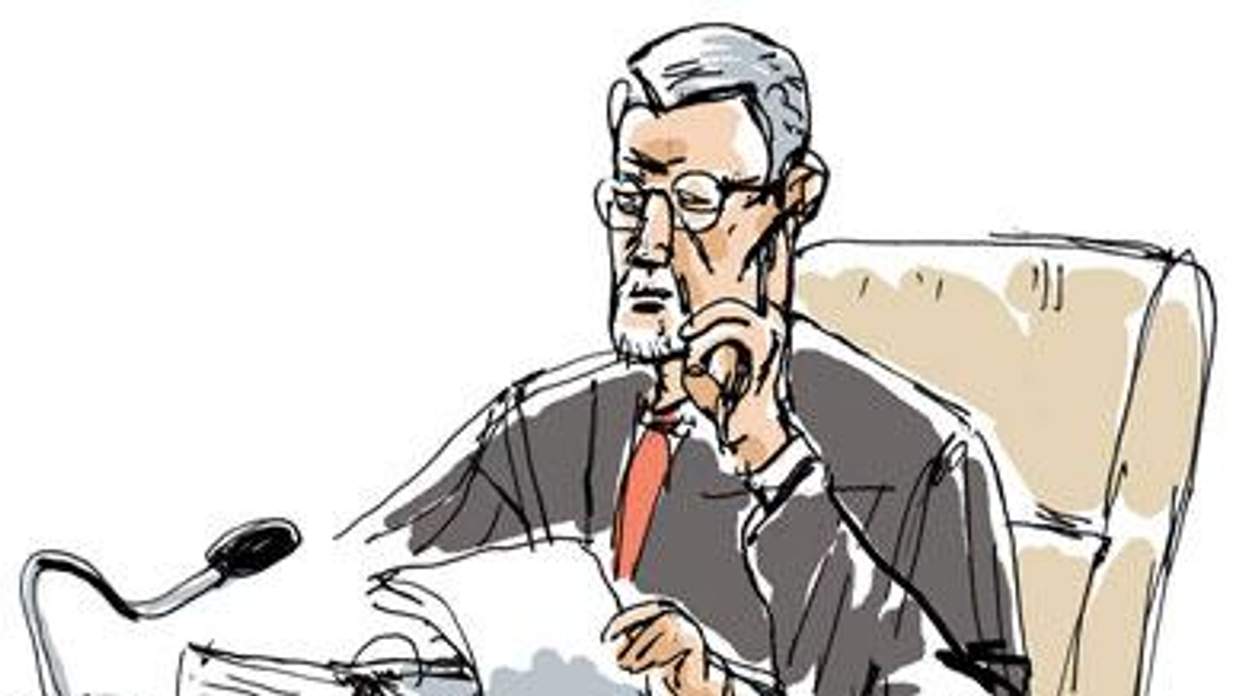The federal judge presiding over a lawsuit challenging Proposition 8, California's anti-marriage equality measure, has distributed to attorneys on both sides a list of 39 questions to be addressed during closing arguments next week.
One veteran gay legal scholar said that the breadth of inquiries posed by U.S. district judge Vaughn R. Walker means that his decision likely will be "blockbuster in its scope."
Among the questions Walker has posed:
What does it mean to have a "choice" in one's sexual orientation?
What is the import of evidence showing that marriage has been historically limited to a man and a woman?
If spouses are obligated to one another for mutual support and ... if legal spousal obligations have no basis in the gender of the spouse, what purpose does a law requiring that a marital partnership consist of one man and one woman serve?
High-profile attorneys Ted Olson (challenging Proposition 8) and Charles Cooper (defending it) will attempt to answer those questions June 16 in a San Francisco courtroom.
Nan Hunter, who for nine years directed the American Civil Liberties Union's National Gay and Lesbian Rights Project, said Walker's questions suggest he may have already drafted an opinion in the four months since he adjourned the evidentiary phase of the trial in January.
The detail and breadth of the questions "are literally all over the place, but in a good way," Hunter said. (The full list of questions is available here.)
One question that stands out for Hunter and other LGBT attorneys following the case is whether voters' belief that Prop. 8 served a legitimate state interest has any bearing on the constitutionality of the ballot measure.
"That," said Hunter, "alludes to a fundamental conflict in constitutional democracy that has been with us since the founding."
The key question before Walker as a judge, however, is whether California's ban on same-sex marriage, passed by voters in 2008 as Prop. 8, violates the U.S. Constitution.
Walker asked the attorneys if they believe the court "could find Proposition 8 to be unconstitutional without also considering the constitutionality of the federal Defense of Marriage Act."
Gary Buseck, legal director of Gay and Lesbian Advocates and Defenders, which is waging one of the DOMA challenges, said he thinks Prop. 8 can be found unconstitutional without implicating DOMA.
"Practically, people may have views on whether DOMA could stand, given some bases on which Prop 8. might be struck," Buseck said. "Then again, some narrow theory for striking Prop. 8 may have no necessary effect on DOMA."
In some cases, Walker's questions appear to be hinting that the evidence submitted thus far for certain critical facts may be insufficient. For instance, he asks, "What are the constitutional consequences if the evidence shows that sexual orientation is immutable for men but not for women? Must gay men and lesbians be treated identically under the equal protection clause?"
If a minority is treated poorly because of an immutable trait, such as race, courts may scrutinize laws that treat them differently with a more rigorous review, known in legal parlance as strict scrutiny.
"We think that term 'immutable' has a meaning different in this analysis from just whether something is 'changeable' in the day-to-day sense," said Lambda Legal marriage project director Jennifer C. Pizer. "Just because a person's expression of their sexuality may be different at different stages of their life doesn't mean their orientation is a matter of voluntary will at any given moment or, more to the point, that the government has any business telling the person to change as the price of equal treatment under law."
Walker is expected to be an active questioner during closing arguments, as he was during opening statements in January. On that day he quickly interrupted Olson to ask, "Does the right to marriage mean you have the right to a marriage license from the state?" He interrupted Cooper's opening statement to note that if President Obama's parents -- an interracial couple--had lived in Virginia, "their marriage would have been unlawful. Doesn't that indicate there's been quite a change in our understanding of what people are entitled to marry? Couldn't an argument be made that there's been a similar evolution with respect to same-sex marriage?"
Walker was equally active in challenging both sides throughout the three weeks of testimony in the case, Perry v. Schwarzenegger, in January.
The trial itself spanned almost three weeks, with 16 witnesses for the plaintiffs challenging California's same-sex marriage ban, and three witnesses who support the initiative.
Judge Walker, an appointee of President George H.W. Bush, is chief of judges in the U.S. district court for Northern California. His credentials coming into the case were predominantly conservative.
In addition to being a Republican appointee, his reputation includes having been one of the attorneys representing the U.S. Olympic Committee in 1985 when it prohibited the San Francisco Arts & Athletics Association from calling its event the Gay Olympics. Walker and his colleagues won the Olympic committee's case against Gay Games in 1986 before the U.S. Supreme Court.
But days after Walker adjourned the witness portion of the trial, the San Francisco Chronicle reported that it is an "open secret" in San Francisco that Walker "is himself gay." The paper made its report without identifying any named sources and with only a "no comment" from Judge Walker himself.
An estimated 18,000 same-sex couples obtained marriage licenses in California between June and November 2008, the period between the California supreme court ruling that the state's constitution required they be treated the same as heterosexual couples, and the passage of Prop. 8.















